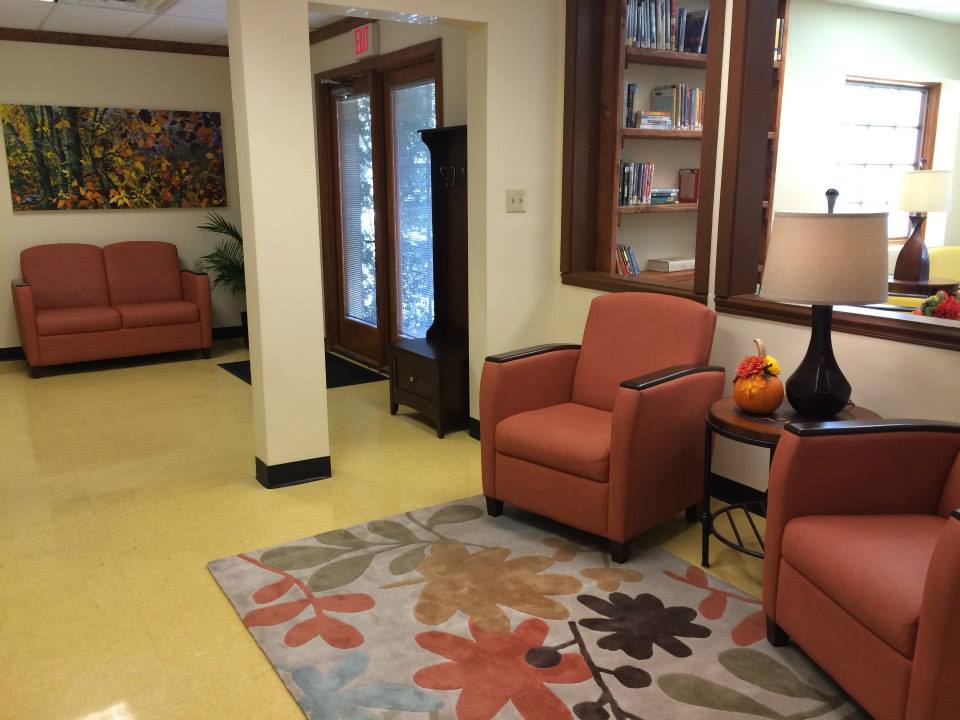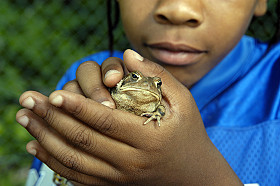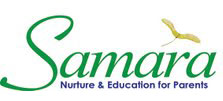The seeds of Samara were sown in the 1980s, when Jean Heigel was a foster parent and Pam Haddad, her daughter, was a child abuse investigator. In working with many troubled families, both Jean and Pam learned that children and parents desired to live together as family, but struggled to create a healthy home environment in which everyone could grow. They wanted to help families heal, and found that in order to create a safe environment for children, they had to first create a safe environment for parents.
Although there was an important intellectual aspect to the process, the larger work was emotional and relational. In the 1990s, Jean and Pam came together to create a parenting curriculum that focused on the health and well-being of parents as the primary caregivers of their children. They noticed that when parents were nurtured, accepted unconditionally, and treated respectfully, the parents carried the respect they were given to their children.
In 2008, Jean and Pam founded Samara, a nonprofit that works to bring parents and children together by nurturing them and sharing knowledge in a way that allows them the freedom and space to try new ways of thinking and embrace new attitudes about family relationships. Today, Samara is continuing its mission in an atmosphere of growth. We believe our emphasis on supporting parents is unique, and we strive to instill confidence and hope in every person who comes to our program. The growth we see is exciting, sometimes even astounding.


Programs
Samara offers three programs for our families: the Samara Intensive Parenting Program, the Samara Intensive Children’s Program, and the Samara Therapeutic Visitation Program. The Intensive Parenting Program is offered in conjunction with the Intensive Children’s Program, and receives referrals through the Dauphin County child welfare system, court system, and probation system, as well as from other nonprofit agencies and the community. Some program participants bring friends or family to the class after they become inspired by their own insights. The Therapeutic Visitation Program operates as a separate program that is only open to families who are currently working within the Dauphin County child welfare system.
Samara Intensive Parenting Program
The purpose of the Intensive Parenting Program is to create healthy growth in the parenting attitudes and behaviors of the participants. Each class meets twice a week during the evening for three hours, and includes a meal and a time of singing with the children. The program offers an immersion-style study of child development, communication, positive parent/child relationships, and respectful discipline. Each parenting group works with a team of two program leaders. We draw from an extensive pool of knowledge in parenting and child development in order to offer a rich experience to our parents. The spiral curriculum is designed to help parents walk through their own childhoods, simultaneously learning to see their own children differently. Literacy is emphasized, as parents are encouraged (though not required) to read aloud in class. By the end of the eight-week class, most parents have chosen to participate in reading, nurturing activities, and sharing their own experiences.
In addition to appealing to the intellect, the program speaks to the heart by offering parents a window through which to compare their parenting styles to those of their own childhood caregivers. Each class is different because of the uniqueness of the participants; the curriculum remains the same, but the learning is varied. Nevertheless, many parents experience moments of realization that their own stumbling blocks in parenting are directly related to the traumas they experienced as children. The conversations during class reflect those realizations, and it is through this process that many class participants open their minds and hearts to the changes in their parenting style that we discuss.
Mutual learning occurs between program leaders and parents. Program leaders learn about the culture in which parents have grown up; parents learn from each other and empathize with each other’s situations. As they connect with each other and the leaders, parents begin to trust and to hope.

Samara Intensive Children's Program
While the Intensive Parenting Program is taking place, children of the class participants spend time in the Intensive Children’s Program. The program is based on the understanding of children’s reactions to trauma. Children who participate in the program often have difficulty with self-regulation, impulsivity, trust, decision-making, and problem-solving. Our staff works patiently to create an environment that offers flexibility and creates boundaries without disrespecting the children.
The children are divided into small groups based on age and temperament. A low children-to-staff ratio is maintained so that each child is met with enough support and flexibility to meet his/her needs. The program creates sensory and relational experiences that help children learn to regulate themselves and build relationships with staff and each other. Many children who come back to the program weekly begin to appreciate and enjoy the flow of the planned activities and free play. One boy asked, “Can I come here forever?” Baking, singing, using natural materials, and playing freely under the care of kind and compassionate staff help children to feel safe and valued.

Samara Therapeutic Visitation Program
The Therapeutic Visitation Program, funded by Dauphin County, takes place in a former probation office building that Samara has renovated to convey the feeling of a healthy, home-like setting. Samara sets up supervised visits for biological parents and their children who are in placement through Dauphin County Children and Youth. Parents and children visit in this warm, inviting setting, where they practice skills learned in the Samara Intensive Parenting Program. Parents move through a four-phase process toward permanent reunification with their children. They are guided by Samara’s highly-trained staff, who work closely to meet parents where they are and assess their progress. Some parents recognize that, because of addiction or mental health issues, they are unable to independently care for their children. In this case, Samara staff supports parents and encourages their growth toward a future time when they may be able to resume a relationship with their adult children.

Our Staff
Our staff is highly trained. We look for people who are flexible, compassionate, committed to the program’s philosophy, and open to growth. Our Parent Program Leaders take the 56-hour Intensive Parenting Program as participants, on equal footing with the other parent participants. The leaders also attend a 64-hour Leader’s Training that includes pedagogy to increase their understanding of the philosophy and methods we use. Our Therapeutic Visitation Program staff members also participate in the Samara Intensive Program and Leader’s Training. In addition, they receive training specific to the work in the Visitation program. We believe this intensive training gives our staff a clear understanding of the challenges our parents face in relating to their children, as well as a broad education of the parenting concepts that inform our philosophy.

 How Can I Help?
How Can I Help?